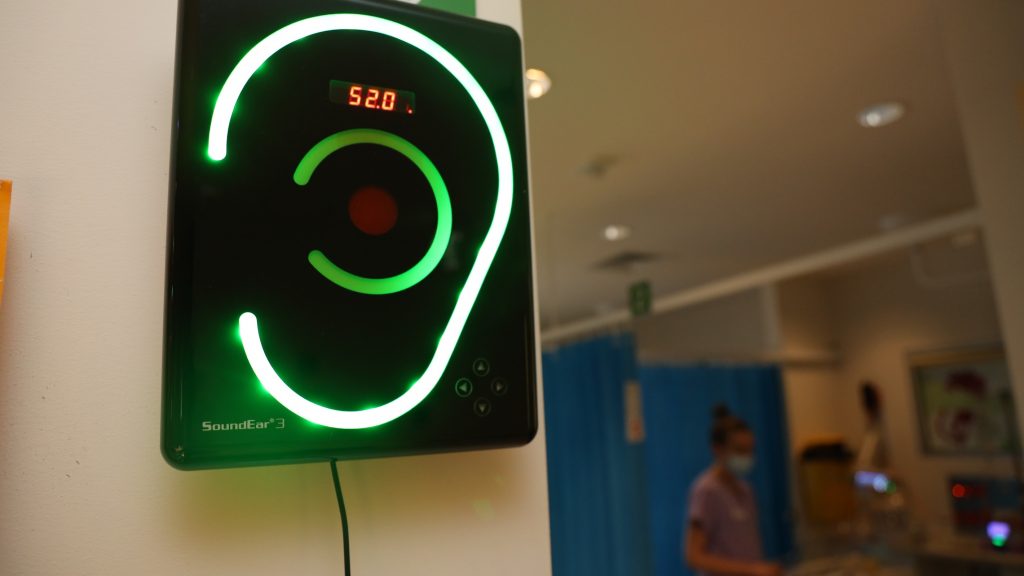 October 15, 2020
October 15, 2020Our Northern Health Neonatal Unit is committed to providing the very best care to our littlest patients. This includes creating an optimal environment for babies to recover – the quieter, the better. Therefore, a key focus for the unit is to reduce noise levels as much as possible.
Thanks to fundraising by our dedicated volunteers and with the help of Northern Health Foundation, the team have recently installed a ‘Sound Ear’ to measure noise levels within the unit. The noise measuring device records sound levels and displays them visually, so staff working in the unit can easily see if levels become too high. The device can also be used to record levels over a continuous period in the unit.
Barbara Rischitelli, Neonatal Nurse Unit Manager, explained the challenges with increased noise within a hospital environment.
“Increased noise is common in hospitals due to medical equipment, staff and visitors. Noisy environments can delay the recovery and rehabilitation process, resulting in longer treatments for patients,” Barbara said.
Premature birth is a very sudden change to the sensory environment of a newborn, so the team are focused on creating the safest environment for preterm babies to thrive in as they grow and develop.
“When a premature baby is born, their sensory systems are not well-developed, so they don’t have the ability to block out excess noise. Brain development in babies is greatest within the last trimester (often the time that premature babies are on the ward),” Barbara explained.
The environment conditions of a Neonatal Unit can therefore lead to behavioural and physiological stress responses, so the Sound Ear device aims to minimise neonatal distress by controlling the sensory environment.
“Sleep and development of premature babies can be protected by ensuring sound levels are at 45 decibels. Achieving this, has shown to have positive effects on brain development,” Barbara said.
“There are many sounds on the wards that can now be measured, which will give the team data on the highest risk noises and help forward planning for the Neonatal Unit – to provide the best care to our babies,” Barbara said.
“Not only does a quiet environment facilitate recovery, it also leads to better sleep patterns and improved wellbeing for babies, parents and staff.”

Featured Image: Baby Henry sleeping soundly


